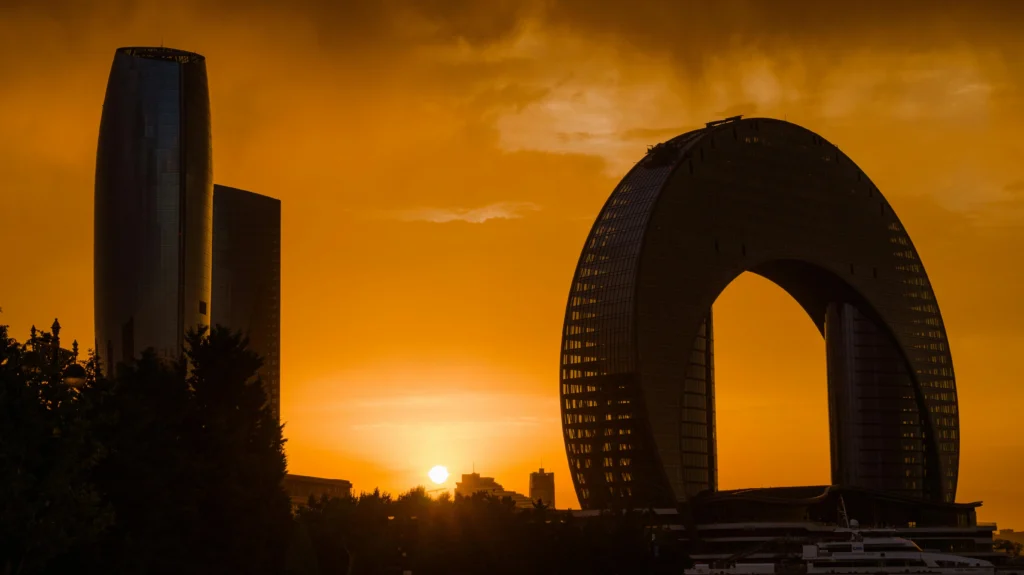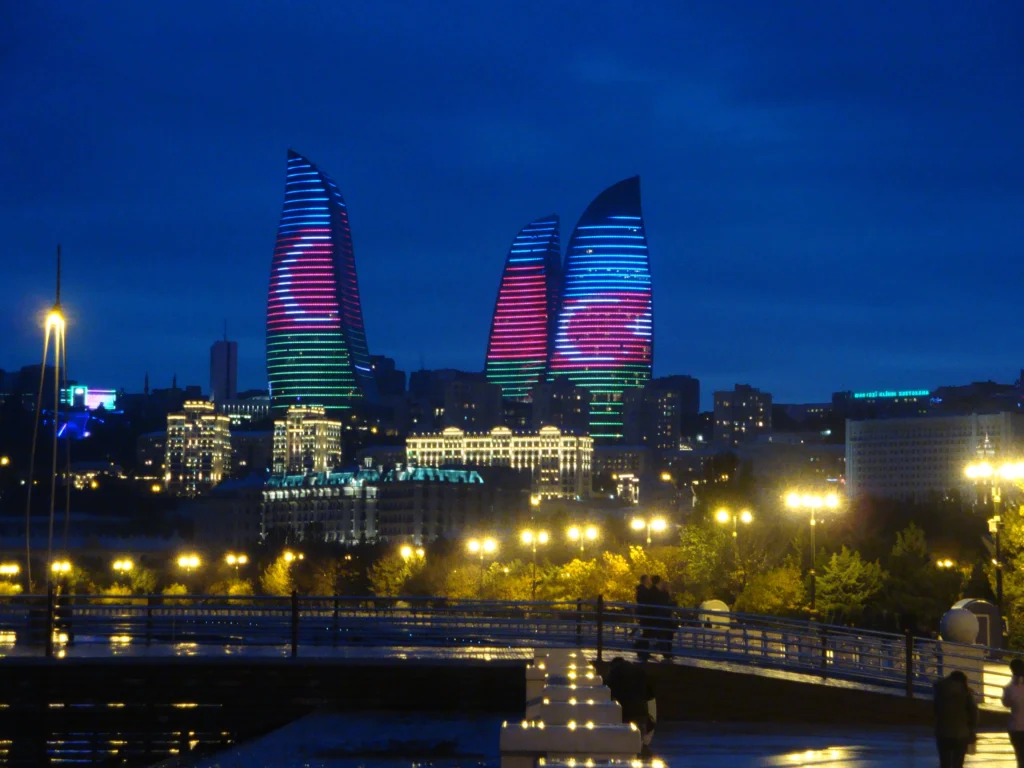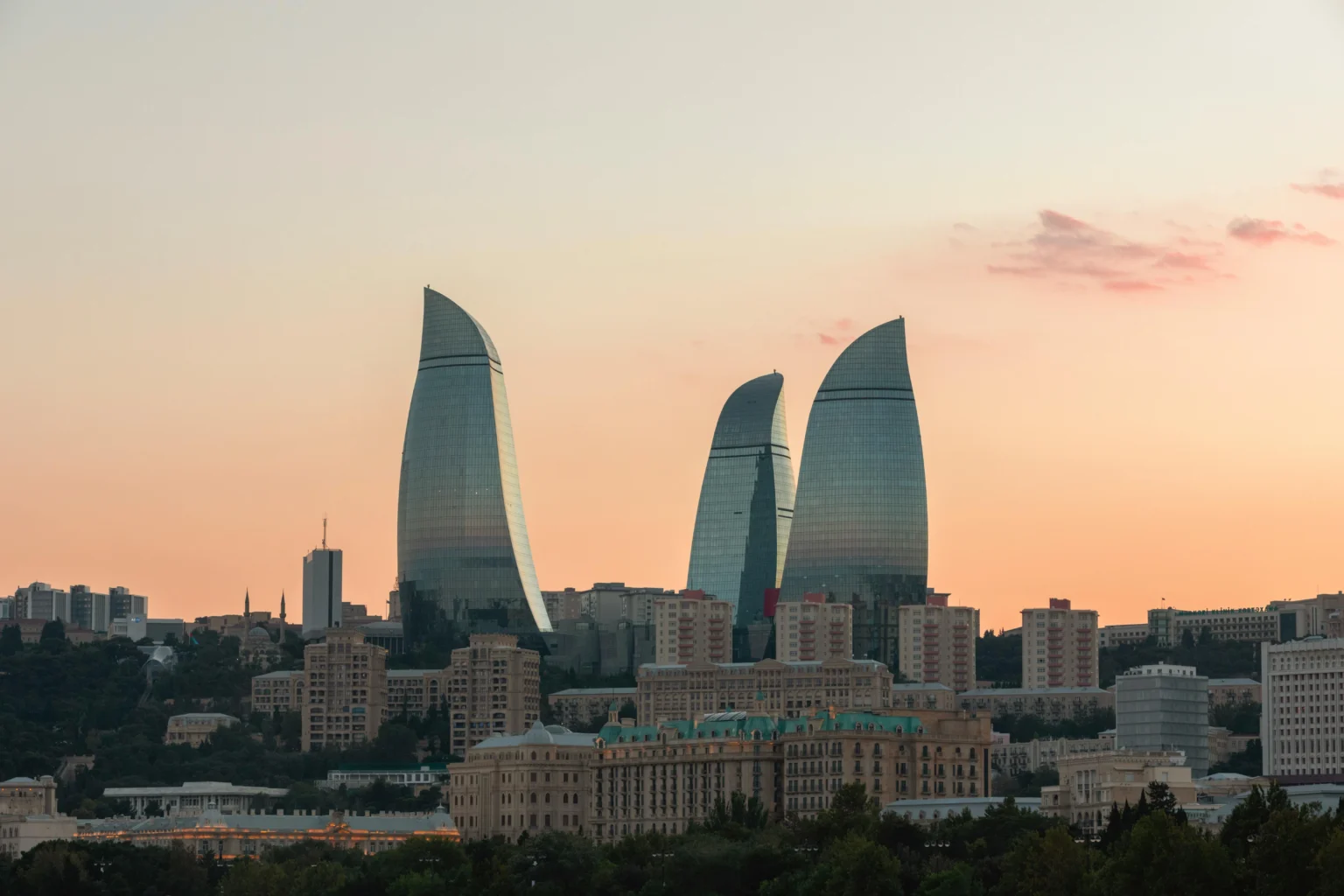Azerbaijan’s emerging tourism boom is facing a setback following its support for Pakistan during the recent conflict with India. Indian cancellations surged 250%, and bookings dropped by 60%, wiping out the momentum built over recent years. Now, Azerbaijan’s tourism board is racing to pivot and restore its travel appeal.
Background: Political Ties Turn into Tourism Backlash
- In May 2025, after India’s Operation Sindoor and the subsequent escalation with Pakistan, both Turkey and Azerbaijan publicly backed Pakistan.
- Indian platforms like MakeMyTrip reported booking drops of 60% to these countries and a 250% spike in cancellations for Azerbaijan.
- Voice of the boycott quickly followed: industrialist Harsh Goenka called on Indians to “skip these two places,” citing ₹4,000 cr in Indian tourism spend lost.
The Fallout: Tourism & Economic Toll
- Indian tourists dropped from roughly 243,000 in 2024 to a sharp fall in May 2025—accounting for an estimated $310 million in lost revenue. India had become Azerbaijan’s fourth-largest source market.
- While visits from Russia, Iran, and Gulf countries remained steady, Indian visitor numbers plunged, dragging down the overall 1.3% increase in total arrivals (735,800 in Jan–Apr 2025).
- The wider anti-Turkish/Azerbaijani sentiment in India also affected businesses—tour operators, airlines, and hotels saw widespread cancellations.

Why Azerbaijan Is Particularity Vulnerable
- Azerbaijan had invested heavily in the Indian travel market, featuring at major expos like SATTE 2025 in New Delhi and launching direct flights via AZAL, leading to impressive 85% spike in South Asian arrivals in 2024.
- Indian tourists once made 19.6% of overnight stays in Azerbaijan in early 2025, roughly half a million nights. Their sudden departure unveils a heavy dependency in just a few months.
Azerbaijan’s Plan to Regain Ground
The Azerbaijan Tourism Board (ATB) has launched a counter-offensive across multiple markets:
- Market Diversification:
- Strengthening ties with Central Asian countries (Uzbekistan, Kazakhstan) and promoting elite tourism products like ski resorts and business travel.
- Doubling down on growing arrivals from Israel, China, Canada, and the U.S., all posting double-digit growth.
- New Routes & Connectivity:
- Expanding AZAL services, including direct flights to Seoul from mid-2025, and continuing twice-weekly service with Pakistan to restore regional ties.
- Promotional Revamps:
- Active engagement in tourism expos: SATTE New Delhi, OTM Mumbai, Pakistan Travel Mart, and Luxury Travel Mart in Central Asia.
- Showcasing sustainable, wellness, wine, ski, and heritage tourism to reduce reliance on a single source market.
- Domestic Infrastructure & Quality Push:
- Upgrading accommodations, reducing regional service cost disparities, and improving transit and inter-city tourism to complement Baku’s appeal.

What Lies Ahead
- Indian market will take time to rebuild. Political sentiment and travel patterns may stay affected until diplomatic conditions shift.
- Azerbaijan’s broadened market strategy—including direct flights to Asia, event-based tourism, and regional partnerships—is critical.
- Yet, with over 50% of tourism stays originating from India and Gulf, sustained effort in infrastructure and diplomacy will be needed to buffer future shocks.
References
- Indian travel firms report travel plunge over Azerbaijan’s political stance — Reuters.
- Boycott calls hit bookings — MakeMyTrip, EaseMyTrip, ixigo data.
- Harsh Goenka’s boycott appeal on X.
- Azerbaijan’s tourism stats & Indian traveler spending ~ $308m–311m.
- Azerbaijan tourism diversification plans — Azernews & national expo reports.
- New flight routes via AZAL to Seoul and Pakistan.












